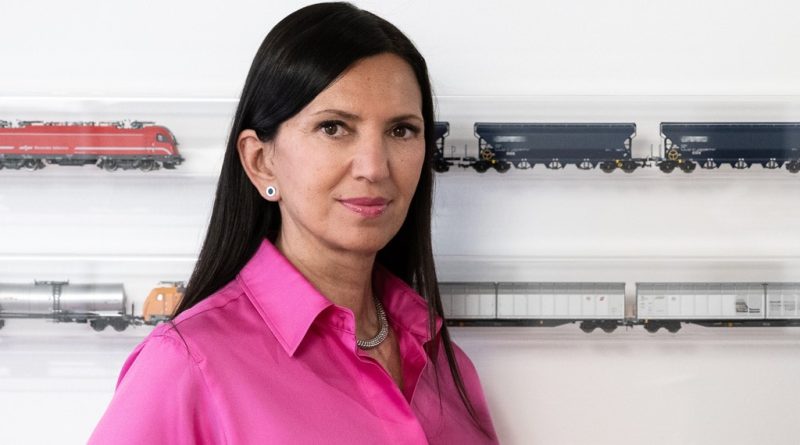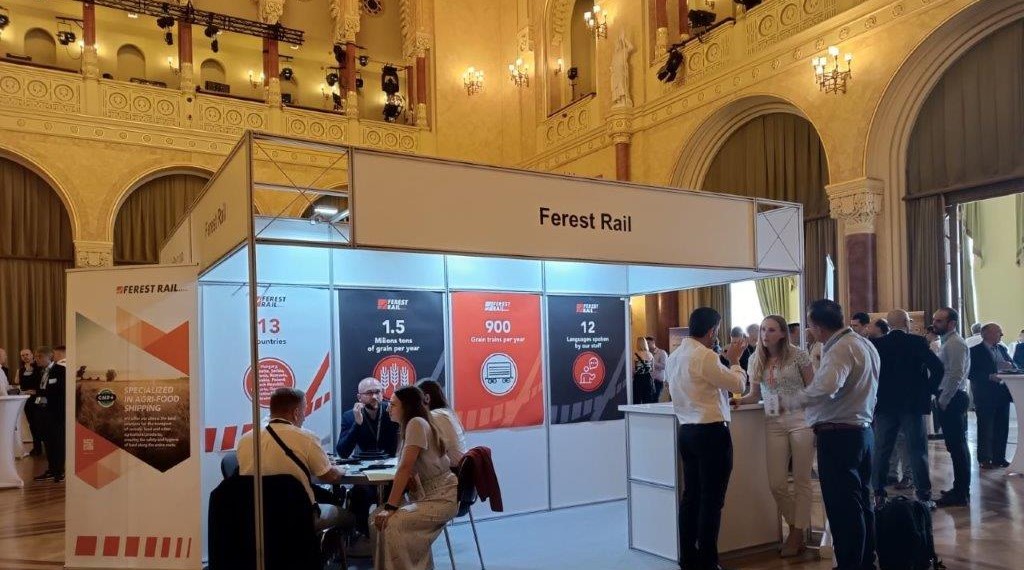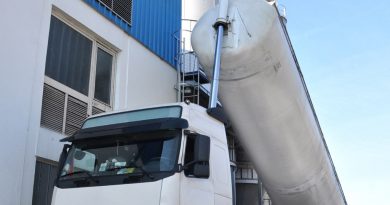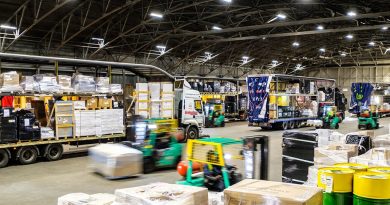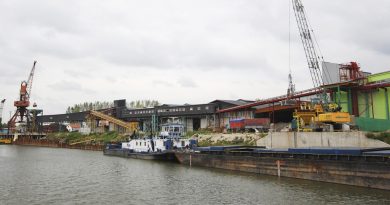CEO and co-owner of Ferest Rail company, Sandra Vukić: Transportation of grain by rail will become increasingly necessary
Our attention is always fixated on new opportunities in the international market, including Serbia – Sandra Vukić, CEO and co-owner of Ferest Rail, said in an interview for the PlutonLogistics portal.
Ferest Rail, based in the city of Udine in northern Italy, has been operating in national and international rail transport since 2011 as part of Ferest Logistics Srl, and as an independent company since 2019. The company is one of the most important European players and the leading Italian company in the field of grain rail transport, and their wagons are also used to transport Serbian grain to the Apennine Peninsula.
We spoke with Sandra Vukić about the development of the international railway market, planned investments, the impact of infrastructure works on the operator’s work, as well as the details of her career path, which – after formal education in the field of medicine – took her from Belgrade all the way to the north of Italy.
PL: During the last two years, Ferest Rail achieved significant growth in both tons transported and revenue. We are halfway through 2023, how would you rate this year and what are your expectations for the coming months?
– That’s right, in 2021, the revenue amounted to €20 million, with 850,000 tons transported, it increased to €30 million and 1.2 million tons in 2022.
The first half of 2023 also yielded excellent results. Compared to the same period in 2022, revenue increased by 40%, and the number of tons transported by 15%. We expect the second half of the year to end with the same growth. In total, in 2023, we anticipate a turnover of €40 million and 1.4 million tons transported.
PL: Which routes do you use? Which commodity categories, besides grain, form part of your portfolio?
– Over the years, Ferest Rail developed several international routes, mainly involving imports to Italy – approximately 75% of the total transported goods – from Hungary, Romania, Serbia, Croatia, Bosnia and Herzegovina, Slovakia, the Czech Republic, Poland, France, Ukraine, and Bulgaria. The exports from Italy are mainly intended for Croatia, Hungary, Romania, Serbia, Bosnia and Herzegovina, and Bulgaria.
Grain makes up about 75%, and the other categories include edible oil, LPG, clay, cars, iron, and steel products.
PL: An interesting news piece garnered the attention of our readers this spring – a “mega-shipment” of grain was transported by rail on the Croatia-Italy route – 1,800 net or 2,500 gross tons. What is the prerequisite for the realization of such large shipments? What are the biggest challenges a railway company faces in carrying out such a transport?
– Ferest Rail dispatched the first “heavy” train with 1,800 net and 2,500 gross tons back in 2020. Our second record was a “heavy” train to Racconigi station, and the news you noticed this spring was the first “heavy” train to Fossano station, also in the Piedmont region.
Large shipments can be organized with newly manufactured wagons that are shorter, lighter, and have a larger volume compared to the old wagons of the national railways. As a result, they are more efficient, thus enabling the transportation of larger quantities of goods.
The detailed organization of transport along the entire route poses the biggest challenge. Before starting the dispatch of heavy trains, we carried out a detailed project to test the feasibility of the entire route together with our international partners.
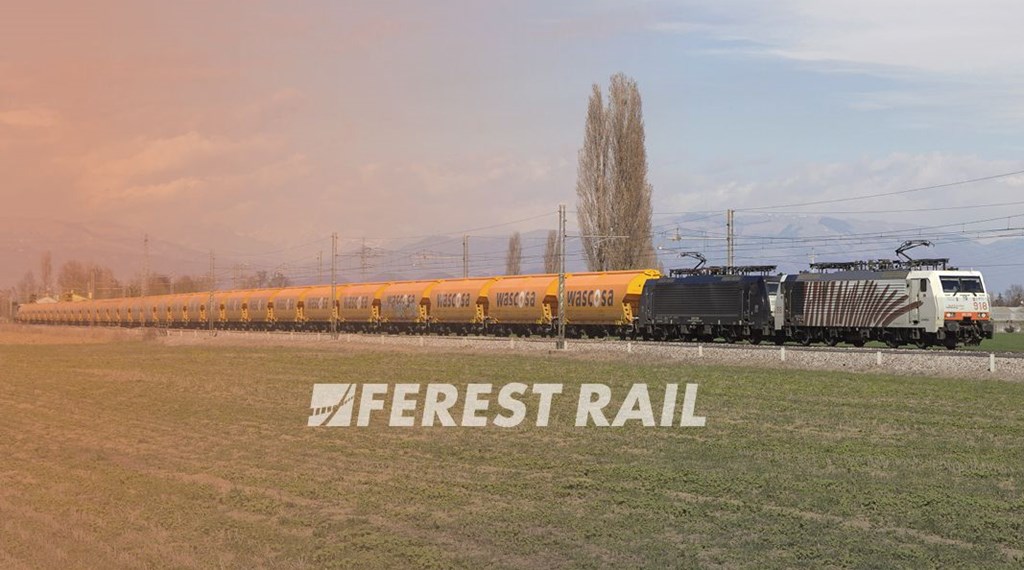
PL: How would you assess the current opportunities and future perspectives on the market of grain rail transport? What are the main obstacles that operators face? How much did the war in Ukraine affect your operation?
– For Italy, our reference market, grain transportation by rail will become increasingly necessary. In 2022, the import of grain of all types to Italy increased by 7.5% compared to the previous year, reaching 17 million tons.
Obstacles are mainly related to infrastructure works. Currently, all over Europe, including Italy, the expansion and reconstruction of the railway network is underway. On the one hand, it is a positive situation because after the works are completed, we will have more efficient railways at our disposal. On the other hand, rail operators are suffering the consequences of these works, resulting in delays, slowdowns, and very expensive detours.
The quantities of goods from Ukraine, exported by sea before the war, suffered an initial blockade and later recorded a partial recovery. This meant that domestic exporters had to look for other logistics solutions – especially in the railway system, with positive effects for operators in that sector.
PL: Do you expect the railway to be more frequently used when it comes to the transport of these goods in the years to come? What will be its strongest trump card compared to other modes of transport in Europe?
– Yes, I believe that after infrastructure improvements, the railway quota will increase. Rail shipments guarantee a much faster transport time compared to sea and river alternatives, in addition to the environmental sustainability factor with a large reduction in CO2 emissions.
PL: How much and in what way is Ferest Rail present on the Serbian market today? Which companies do you cooperate with? Who are your most important partners and clients?
– As I already mentioned, we are present in the Serbian market in transit, export, and import. These are smaller quantities, but we hope that after the completion of the infrastructure works, this will increase significantly.
When it comes to railway operators, for several years now, our partner has been Kombinovani prevoz. As for clients, we have long-term successful cooperation with the companies Panšped, Lokomotiva, and Milšped.
PL: Do you see the potential for growth and expansion, greater transport of goods from Serbia, and new collaborations? Can the railway become a stronger trump card in Serbian export logistics in the future, in the case of grain transport?
– Our attention is always fixated on new opportunities that may appear in the international market, including Serbia. There will probably be new expansions towards the Italian market in the raw materials sector.
Infrastructure works, which include, among others, the Serbian network, are currently a great problem for the growth of the sector, but once the works are completed, we expect a strong re-launch of the Serbian market.
PL: Ferest Rail recently acquired a large number of wagons, and you also announced that the goal is to completely renew the fleet. What deadline are we talking about?
– Currently, our fleet consists of 1,200 grain wagons, about 40% of which are from the old line. We plan to replace them with new wagons in the next 3-4 years.
PL: How do you perceive the development of your company in the five-year period? What are the most important goals you have set?
– It is essential for our company to consolidate our presence in the international market. We expect that in the next five years, we will be able to achieve further growth of around 30-40% in transported quantities, also thanks to the opening of new markets – Germany, the Netherlands, and Poland.
Studies in Belgrade, a career in Italy
Sandra Vukić came to the world of railways thanks to her knowledge of the Serbian language.
– I graduated from the High Medical College in Belgrade, as a dietitian-nutritionist. My first work experience, immediately after graduation, was in a private company that supplied hospitals, clinics, and laboratories with consumables and devices for various analyses. After that, I worked in two more companies from the same sector until the end of 1995, when I decided to come to Italy.
I entered the railway world thanks to my knowledge of languages – a company that dealt with railway transport was looking for a person who, in addition to Italian, spoke Serbo-Croatian and English. I started in the operations department, and after a couple of years, I moved to the commercial department. In early 2011, I was offered to try to develop railway transport in a company that until then only dealt with road transport. I really liked that challenge, so I happily accepted the offer. The business was constantly growing and soon I became the CEO of the railway sector. In the meantime, the railway sector surpassed the road sector, so we learned to “separate” it – on April 1st, 2019, the demerger process was carried out and we founded a new company, Ferest Rail. Since the foundation, I have held the position of general director and member of the board of directors – says Vukić.
Photo: promo and personal archive


